The EU Accessibility Act will be officially implemented on June 28, 2025, as the date approaches, major domestic terminal enterprises are very concerned about the resulting compliance risks in the sea
1. Background and purpose of the bill
The European Accessibility Act (EAA) refers to Directive 2019/882 on accessibility requirements for products and services.

The EU Accessibility Act is an important piece of law in the European Union that aims to improve the accessibility of products and services to meet the needs of people with disabilities through harmonized standards and requirements. The promulgation of this law reflects the EU's concern for and protection of the rights and interests of persons with disabilities, and also reflects the EU's determination and actions to promote information accessibility.
2. The implementation time
EU Member States have until 28 June 2022 to transpose their national laws, and ICT products and services placed or offered on the European market from 28 June 2025 onwards must meet the Accessibility Act.
Services that have been provided and contracted before June 28, 2025: can continue to be used for the duration of the contract, but for a maximum of 5 years of transition period, until June 28, 2030, when they must be fully implemented.
3. Scope of application
The Act applies to specific products and services that are sold or used within the EU after 28 June 2025:
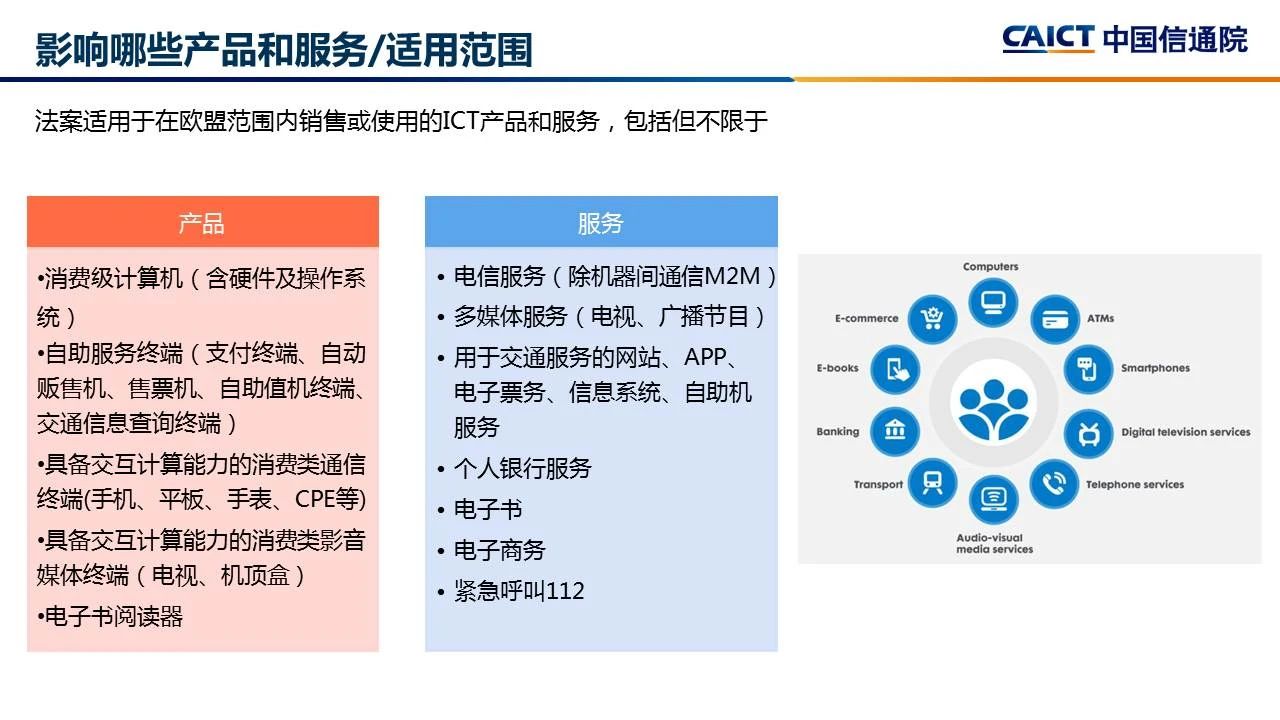
Fourth, specific requirements
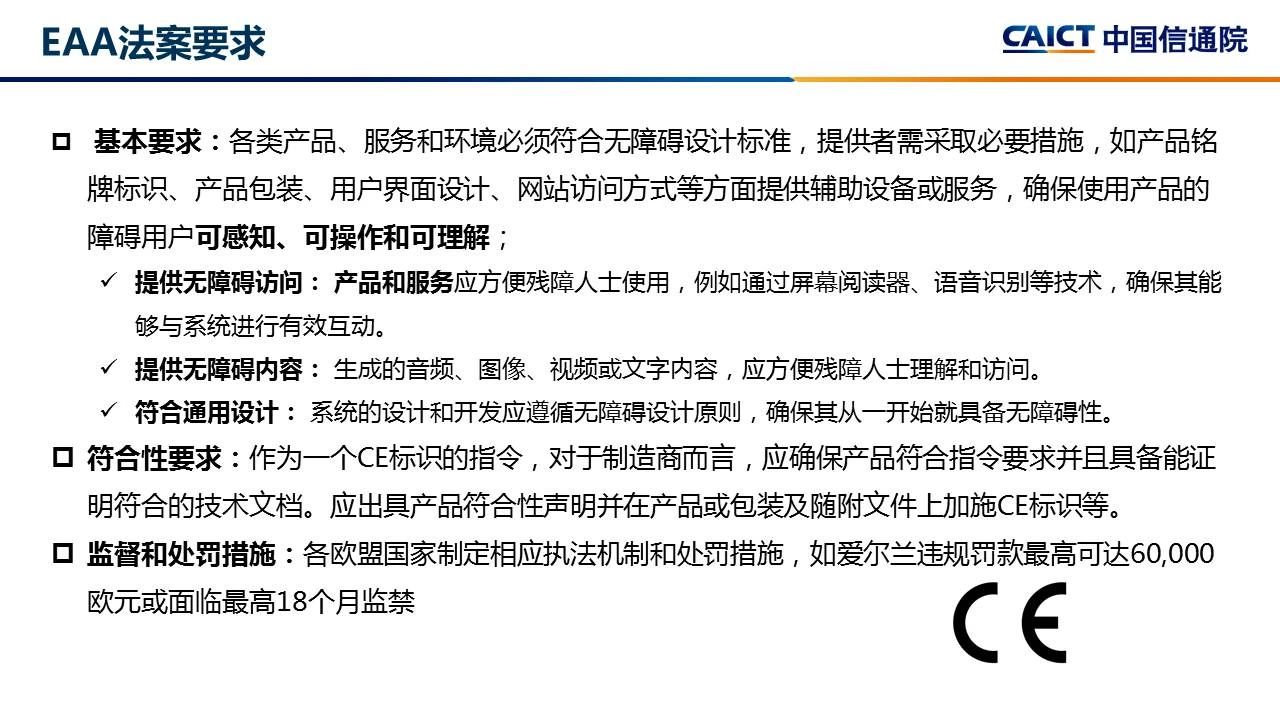
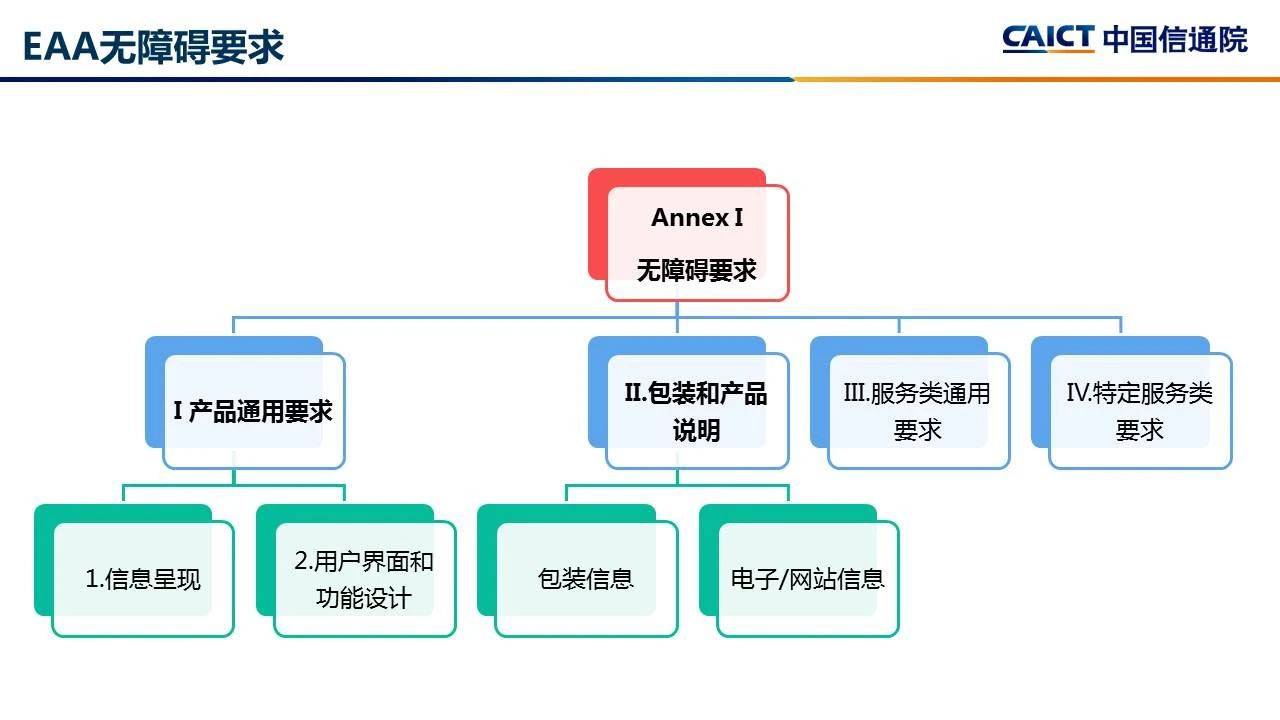
5. Reference standards for the implementation of the act
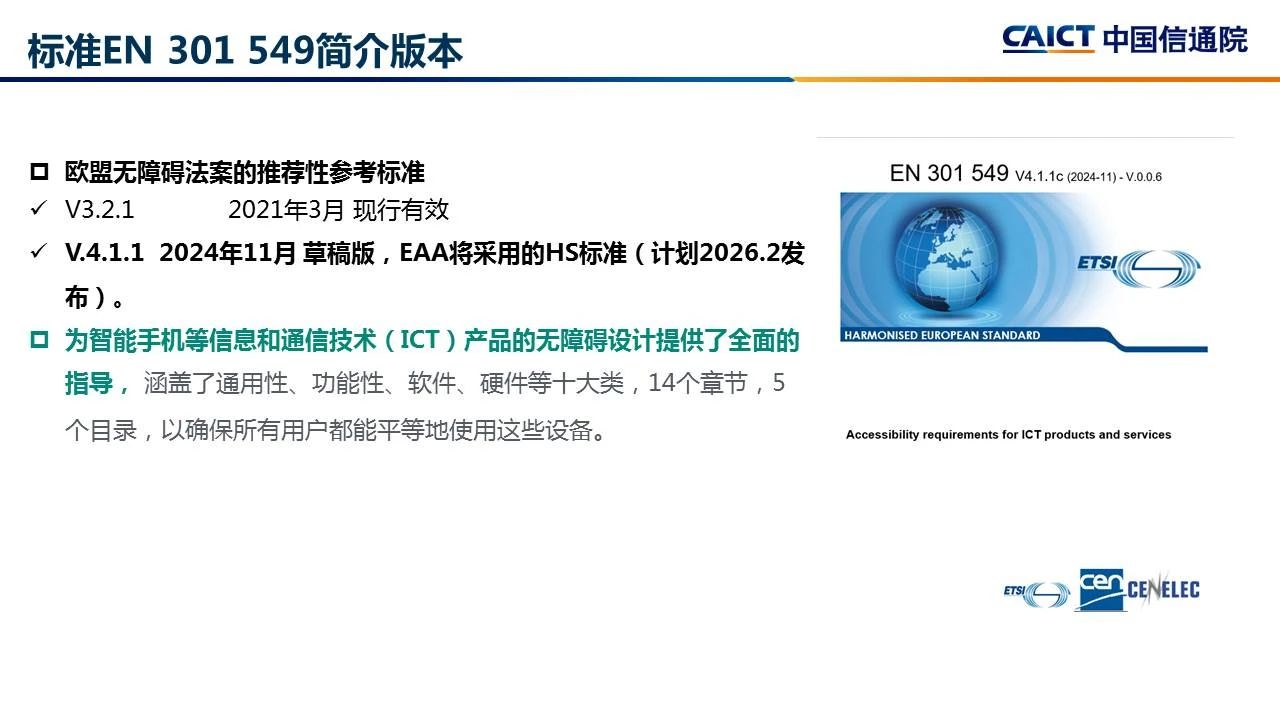
The core requirements of the standard correspond to the basic requirements of the EAA Act, the principle of accessibility, functional and compatibility requirements, perceivability, operability and comprehensibility.
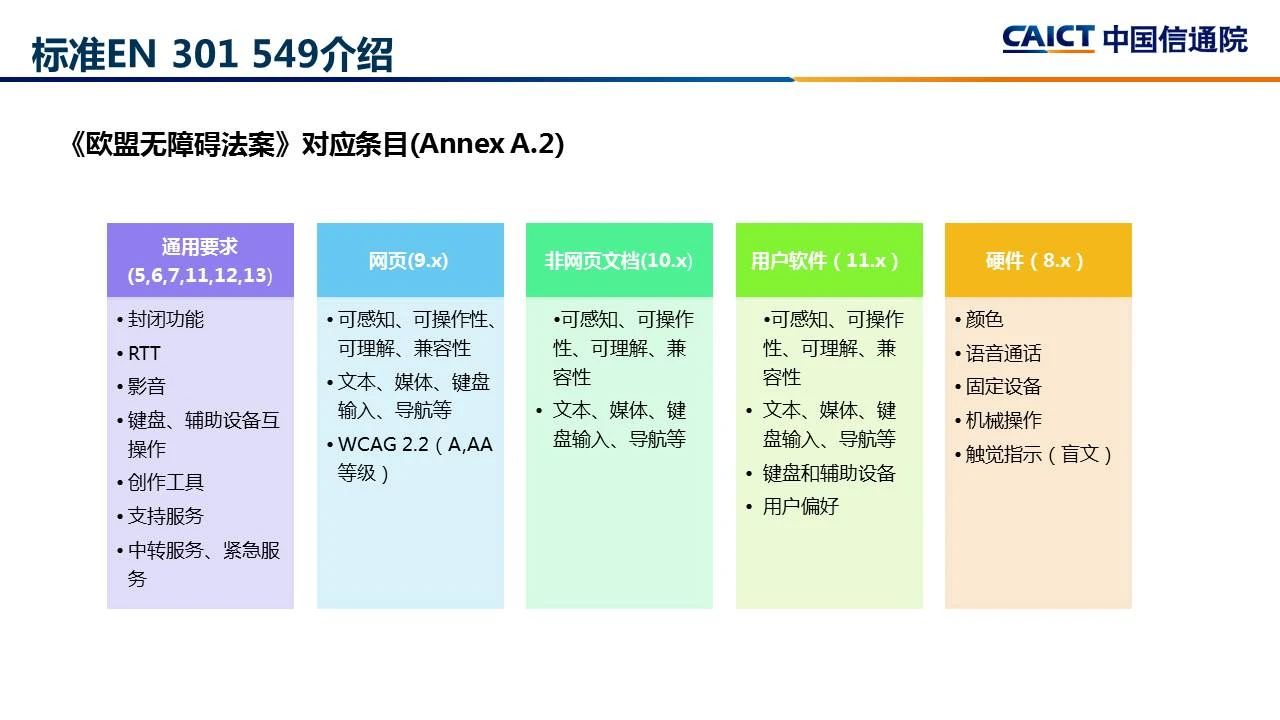
6. Impact on Chinese enterprises going overseas
With the exception of "micro-enterprises" with fewer than 10 employees and an annual turnover of no more than €2 million or an annual balance sheet of no more than €2 million, the implementation of the EU Accessibility Act will have an impact on the EU expansion of all other products and services provided by equipment manufacturers or service providers. All enterprises should strengthen their research and understanding of accessibility laws and standards, and actively carry out accessibility renovation to ensure that their products and services meet the requirements of the EU Accessibility Act, so as to enhance their competitiveness and user experience in the EU market.
The CTTL Terminal Labs of the Chinese Academy of Information and Communications Technology (CAICT) has been committed to the research and promotion of information accessibility and age-appropriate technology for intelligent terminal products, and closely tracks the latest developments of accessibility regulations and standards at home and abroad, and actively contributes wisdom and strategies to the development of China's information accessibility cause. The laboratory, together with the China Blind Association and the China Braille Library, has been providing information accessibility related services for industrial customers for a long time, and is now fully equipped with the testing capabilities of EAA and EN301 549 standards, which can help domestic terminal enterprises reduce certification costs and shorten the R&D cycle, and ensure the smooth expansion of enterprises in overseas markets.
For more information on information accessibility and age-appropriate cooperation, please contact:
Mr. Zhao
zhaoxinglong@caict.ac.cn
Mr. Zhang
zhangxiaoyu@caict.ac.cn